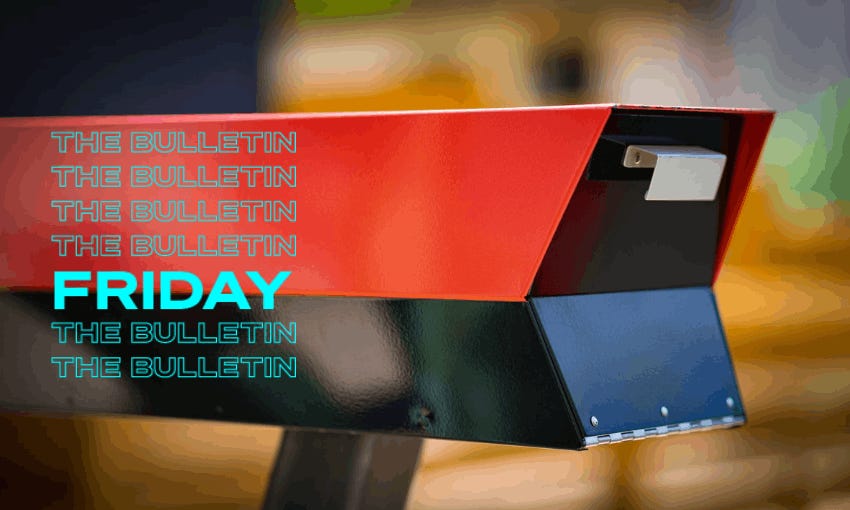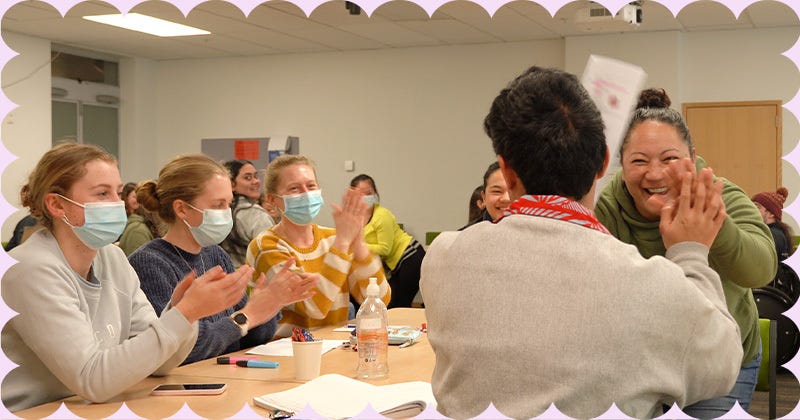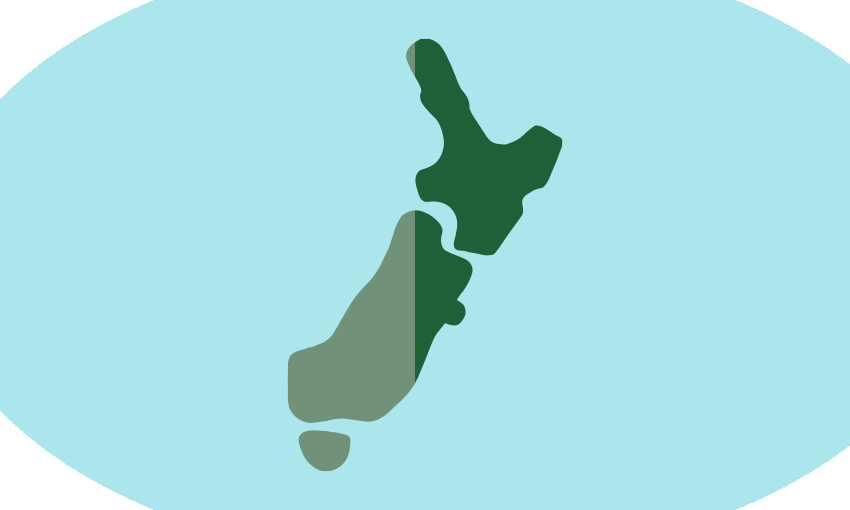The soft thud of over three million letters landing
Voting papers start arriving for local government elections today. As a whole, local government is under pressure and reform is coming. At a local level, debates are lively and full
Mōrena and welcome to The Bulletin for Friday, September 16, by Anna Rawhiti-Connell. Presented in partnership with Z Energy.
In today’s edition: plans for the Queen’s funeral released; possible billion dollar clean up needed at Tiwai Point; the 150 car parks at the heart of enabling a walkable Wellington; but first; local government under pressure but producing a lively run-up to the elections.
Local election voting papers will start arriving in actual mailboxes from today (Image: Pexels)
Reform is coming for local government but not until after this year’s election
By their very nature, local government elections are disparate affairs. You live where you live, you might read your local news and there’s not much point worrying about what’s happening elsewhere. But local government as a whole is under a lot of pressure. Reform is coming but not until after this year’s election. Newsroom's Jono Mine argues this denies residents the chance to vote on a pretty big question: can small communities make big decisions on complex systems? Early indications from the reform review team suggest the voting age may be lowered and terms extended. In February last year, Alex Braae wrote about the ten big issues facing local government. It’s worth a read just to see how many of them are manifesting in the run up to the review and local government elections this year.
Voting papers arriving from today
Local election voting papers start arriving across the country from today. My mail usually gets eaten by snails but I solemnly swear to save my papers from this fate. One of Braae’s questions was about low turn-out. Turnout at the last election was down on previous elections. Emma Vitz took a look at that for us recently. Bronwyn Hayward argues lowering the voting age will help. 238 people have already won local election seats with 119 elections out of 538 were uncontested when nominations closed. It’s entirely possible we have too many elections. Braae raised the issue of amalgamation in 2021 which is now a live debate in the Wellington region and in Canterbury. There are fresh concerns most days that low interest in standing for local government is being exploited by people linked to far-right conspiracy groups.
Candidate debates are full, convivial and lively
Reading through local government coverage at the moment, there are also things to feel encouraged about. There are reports of packed halls for candidate meetings in Northland and convivial debate that people queued for in Invercargill. Young people are standing for mayor in Nelson, Dunedin and Hamilton. While it's not good that emergency housing is such an issue in Rotorua, it is good that it is being discussed in a public setting like a mayoral debate where it’s not mediated by central government. Nearly half of all candidates in contested seats have submitted information on who they are and what their policies are to policy.nz.
Wellington mayoral candidate pro New Zealand becoming a republic
Toby Manhire hosted a debate last night with the Wellington mayoral candidates. If you’re voting in Wellington, I recommend watching it. Paul Eagle is pro New Zealand becoming a republic, Andy Foster couldn’t do his party trick because the stage wasn’t “long enough” and Tory Whanau got Eagle’s endorsement. These debates are weird and wonderful. As we emerge from over two years of a lot of isolation, there’s something in the coverage that paints a picture of a recovery, even if it's just in the lost art of gathering or getting stuck into issues that aren’t the pandemic. Remember when we all said we were going to keep on talking to our neighbours and paying attention to all things local after the first lockdown? Local government elections are that but with voting power. Check your mailboxes.
The tauira taking Reo Māori to med school
A group of University of Otago medical students wanted more Te Reo training, so they decided to provide it themselves. From those seeds, Kia Ora Te Reo has now grown into an eight-week course to help teach medical students and staff basic Te Reo. The initiative is designed both to help graduates better connect with Māori patients in their practice, and to give Māori students a kaupapa-Māori project to connect their culture with their study.
Learn more about Kia Ora Te Reo here. (Sponsored)
State funeral followed by private service for the Queen
Details for the Queen’s funeral have been released. The state funeral, taking place next Monday night (NZ time) at Westminster Abbey, will be attended by more than 2,000 official guests.The funeral will be conducted by the Dean of Westminster and the UK prime minister, Liz Truss and secretary general of the Commonwealth, Patricia Scotland will read from the bible. The Archbishop of Canterbury will deliver the sermon. Following the funeral, the Queen will be laid to rest at a private service with the royal family. Prime minister Jacinda Ardern arrived in London yesterday and will be granted an audience with King Charles III. Ardern will also meet Prince William and new UK prime minister Liz Truss.
Potential billion dollar clean up at Tiwai Point
Following a new report of widespread and ongoing contamination at Tiwai Point near Bluff, an environmental group has said clean up at the site could cost almost a billion dollars. The future of Tiwai Point was in jeopardy in 2020 after Rio Tinto announced plans to shut the country’s only aluminium smelter down in 2021, citing electricity costs. In 2021 it announced it had secured a cut-price power deal from power companies to keep it open for another four years. The Electricity Authority intervened in August, making an urgent amendment to an industry code that means power companies would not be able to strike a new deal to allow the Tiwai Point to stay open beyond the end of 2024, without its approval.
Got a couple minutes?
Thank you to everyone who took the time to do this short survey yesterday. If you haven’t and have a minute time, we're keen to know a bit more about our Bulletin subscribers, so we've put together a few quick questions.
Who owns the car parks?
In this week's episode of When the Facts Change, Bernard Hickey zooms in on the fate of 150 car parks in Wellington on a particularly important route for enabling mode shift in the capital. The great battle for walkable cities that prioritise cyclists and pedestrians over cars has only just begun. In this battle, Waka Kotahi is a key player in deciding how this battle plays out. Hickey talks to Waka Kotahi's urban mobile manager Kathryn King to find out how mode shift might be allowed, or made to happen.
Click and collect
National could govern with the support of Act in the latest Taxpayers' Union-Curia poll.
Woman charged over the discovery of two children's bodies in Auckland facing extradition hearing in Seoul.
Pharmac confirms it is removing all funding restrictions from progesterone.
Some traction on safe zones for abortion clinics after March law change.
House prices fall in in 803 of the 955 suburbs.
Got some feedback about The Bulletin, or anything in the news? Get in touch with me at thebulletin@thespinoff.co.nz.
If you liked what you read today, share The Bulletin with friends, family and colleagues.
In terms of Covid policy, this week saw the country revert back to pretty much how things were before the pandemic. But, Duncan Greive writes, little else is the same. Alex Casey talks to Heartbreak Island's Ashleigh Williams, who might be the only person in the world to be appearing in both a corny reality dating show and a confronting feminist theatre production at the same time. Alice Webb-Liddall visits a netball tournament where te reo Māori takes centre court. Stewart Sowman-Lund attends an Invercargill mayoral debate featuring everybody but the incumbent Tim Shadbolt. And a panel of Taskmaster NZ tragics ranks every challenge on the show so far.
All Blacks win after eleventh hour call from referee
The All Blacks won against the Wallabies last night in Melbourne but not without controversy. French referee Matthieu Raynal made a call at the 79th-minute, the score at 39-37 to the All Blacks, to reverse a penalty awarded to the Australians for a delay in taking the kick. Australian coach Dave Rennie has said the call showed “a lack of a feel for the big occasion.”
And a heads up for netball fans. The Silver Ferns series with Jamaica which was due to start on Saturday night has been slightly delayed due to issues with the Jamaican team’s passports.
It’s Friday so…
Shenkin is a lance corporal in the 3rd Battalion The Royal Welsh who participated in King Charles’ proclamation at Cardiff Castle. Shenkin is a goat. ITV has a very detailed write up on Shenkin (with photos and video). It includes an alarming detail about what goats from one of the other Royal Welsh regiments were being given to eat that necessitated a “this no longer happens” clarification.











I wonder if Jacinda will break her streak of meeting UK PMs and their time in office ending shortly after. She’s 3 for 3 so far